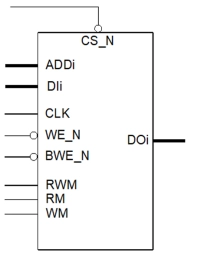Memory & Libraries IP
Welcome to the ultimate Memory & Libraries IP hub! Explore our vast directory of Memory & Libraries IP.
Memory & Libraries IP cores include a large listing of memory compilers, non-volatile memory (NVM), logic libraries, and IO solutions.
All offers in
Memory & Libraries IP
Filter
Compare
4,116
Memory & Libraries IP
from
83
vendors
(1
-
10)
-
MRAM Synthesizable Transactor
- Supports all the MRAM commands as per the MR2A16A and MR0A08B specifications.
- Supports Symmetrical high-speed read and write with fast access time.
- Supports SRAM Compatible timing
- Supports native non-volatility
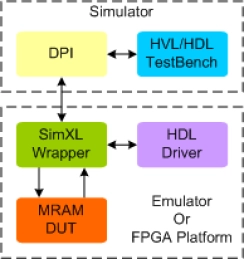
-
Stand-Alone ESD Cell in GF 28nm
- This ESD library is a silicon-proven set of discrete, pad-independent ESD clamps for GlobalFoundries 28nm technology.
- The library is designed to provide robust ESD protection for power domains and low-speed signals in advanced SoCs where traditional pad-based protection is insufficient or impractical.
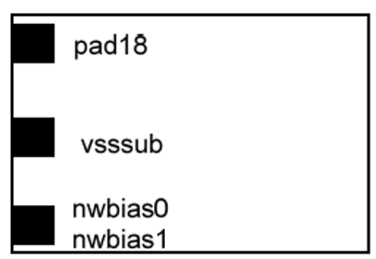
-
I/O Library with LVDS in SkyWater 90nm
- A SkyWater I/O Library combining standard GPIO, I2C-compatible ODIO, analog I/O, and integrated LVDS for robust mixed-signal and moderate-speed differ ential interfaces.
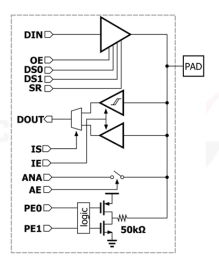
-
Secure Storage Solution for OTP IP
- Advanced Security: Encrypted storage in OTP using dynamic root key from SRAM PUF
- System-Level Security Extension: Add-on allows sharing the SRAM PUF to protect chip-level assets
- Flexible Security Configuration: Secure regions within OTP can be tailored to meet specific needs
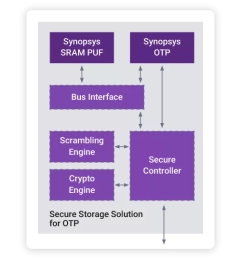
-
Single Port High-Speed Multi Bank SRAM Memory Compiler on GF 22FDX+
- Ultra-Low Leakage - GLOBALFOUNDRIES low-leakage 6T L110 bit cells with High Vt and low leakage periphery to ensure minimal leakage and high yield.
- Multi-Bank Architecture - Memory split into 1 to 4 banks for reduced bit line length and enhanced timing.
- Ultra Low Power Standby - Built-in source biasing trims standby current to a minimum for data retention.
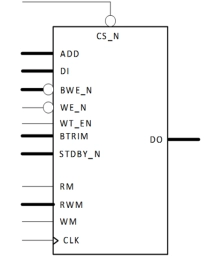
-
Dual Port Register File Compiler (1 Read-only port, 1 Write-only port) - GF 22FDX+
- Uses 8T-TP185SL bit cells.
- Isolated Supplies: Periphery and array power domains can be independently powered down in standby mode.
- Deep Sleep Standby Mode: Memory retains data at minimal power via internal biasing.
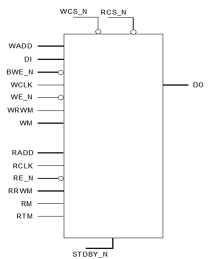
-
High Speed Single Port Compiler on TSMC 40nm ULP
- Low voltage
- Ultra low power data retention
- Self biasing
- Soft error immunity
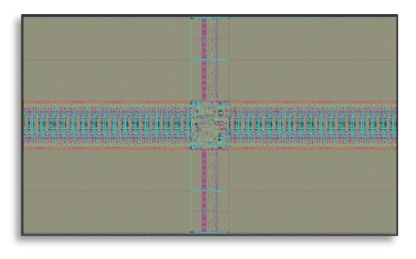
-
Single Port Register File Compiler on N22ULL
- Ultra-Low Leakage: High VT (HVT) are used to minimize leakage performance.
- Bit Cell: Utilizes Foundry’s 6T bit cells to ensure high manufacturing yields
- Deep Sleep Mode Retains data a minimal power consumption. Dedicated standby mode reduces power required to an absolute minimum to retain the memory contents.
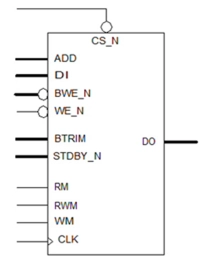
-
Single Port High Speed SRAM Memory Compiler on N22ULL
- Ultra low power data retention. Memory instances generated by the Bulk 22ULL go into a deep sleep mode that retains data at minimal power consumption.
- Self biasing. The SP SRAM 22ULL internal self-biasing capabilities provide ease of IP integration.
- High yield. To ensure high manufacturing yield, bulk 22ULL uses low leakage 6T (0.110µ2) bit cells and is consistent with Design for Manufacturing (DFM) guidelines for the Bulk 22ULL process.
- High usability. All signal and power pins are available on metal 4 while maintaining routing porosity in metal 4. Power pins can optionally be made available on metal 5 to simplify the power connections at the chip level.
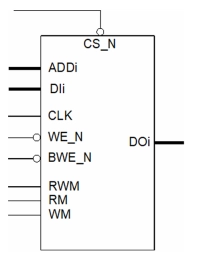
-
Single Port Low Voltage SRAM Memory Compiler on N22ULL - Low Power Retention and Column Repair
- Ultra-Low Leakage: High VT (HVT) are used to minimize leakage performance
- Bit Cell: Utilizes Low Leakage 6T bit cells to ensure high manufacturing yields
- Ultra Low Power Standby: Internally generated bias voltage for low leakage data retention
- Isolated Array and Periphery supplies: Periphery voltage can be shut off to further reduce standby power
